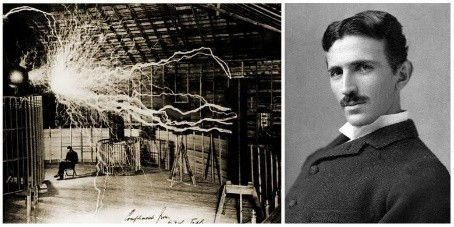New Blood with Old Bottles
- Tom Dupree
- Sep 3, 2021
- 4 min read
Updated: Sep 4, 2021

By FRANK SULLIVAN
The club needs new blood and every member certainly ought to be on the lookout for it in the shape of new members, or approximately in the shape of new members. Of course, we cannot be too choosy about the shape of new members. Indeed it is obvious, from a look at the old members, that we never have been.
A new member ought to be connected with one of the Arts, like writing, etching, acting, singing or steam-fitting. He ought to have the normal complement of members, i.e., two legs, two arms, two eyes, two ears, two navels and at least one of everything else. A patron of the arts need not have any members.
A member should not propose a candidate unless he knows him well. A friendship of at least two weeks is suggested as a minimum.
Methods of maneuvering your candidate into the club vary. It helps if you can get something on one or all members of the admissions committee. The writer is in possession of some rather piquant snapshots of various members of the Admissions Committee, taken by surprise and detectives, in what my esteemed fellow Player, Harold McGee, would call a Compromising Situation. I shall be glad to rent these photos for a reasonable sum to any proposer wishing to cajole the committee into approving a candidate.
Every Player is expected to be a gentleman. The proposer ought to tell his candidate this, but not in the bar if one of the more violent pool games is going on. In that case better take him up to the Booth Room and tell him there.
If a gentleman ever should be elected to the club, kindly notify the chairman of the board of governors, who wishes to place him in the museum, alongside the bra Mrs. Siddons wore in "Richard Brinsley Sheridan."
Never propose a candidate while under the influence of liquor. This seems like a silly rule.
If you do propose a candidate while under the influence, don't wander into the National Arts Club by mistake and propose him there. This has happened several times and has resulted in confusion.
In proposing a candidate you will first enter his name in the book, spelling it wrong. Then you fill out an application, making it sound as fulsome and as crammed with lies as a nominating speech at a political convention. Do not let your conscience annoy you about these lies. If the Admissions Committee had been told the truth about all the candidates who have been proposed for membership from the beginning, the club would have folded about the time Nan Patterson shot McKinley.
To one acquainted with and devoted to the lovely old traditions of the club it is painful to note that in late years the custom of a new member buying wine for the house on the occasion of his first visit as a member has been more honored in the breach, as my esteemed fellow Player, Thomas Chalmers, is fond of saying, than in the observance.
The same must be said, alas, for the fine old custom of a new member, on the night of his election, sacrificing a virgin to the sponsor who proposed him.
Members of the Holy Name Society who are tapped for membership in the club ought in fairness to be warned that our beloved prodigal, Ray Vir Den, has returned to the fold and was in fact heard complaining the other day that no --- --- son --- --- --- of a --- ing calf had as yet been killed to mark his return.
A nice question of etiquette arises when, after being elected, a new member turns out to have not quite the same set of sterling qualities his proposer thought he had. If the proposer finds that his Dr. Jekyll has turned into a Mr. Hyde and is endearing himself to the house committee by punching the older members and throwing up in the bar, the sponsor should pass off the gaffe gracefully by doing the same thing. This will put the erring novice at his ease. Remember that he is breaking the crockery and house rules only because he is, as my esteemed fellow Player, Roland Winters, likes to put it, shy.
The main qualification of a patron of the arts should be solvency, in case any of the real members of the club need a touch. If a patron of the arts becomes insolvent after election to the club and cannot therefore be touched any more, he should be stung to death by the chairman of the house committee, immediately after the annual nuptial flight, or Ladies' Day.

Frank Sullivan joined The Players in 1925, one year before his first contribution to the just-founded The New Yorker was published. His most famous character, “Mr. Arbuthnot, the Cliché Expert,” debuted in 1935 and was a periodic feature of the magazine through 1952. A member of the Algonquin Round Table, he inaugurated The New Yorker's beloved annual Christmas poem, of which he wrote the first forty-two.
Faithfully reproduced from The Players After 75 Years, edited by George Woodbridge Stewart. Copyright 1968 by The Players, New York.



As current chair of the Admissions Committee, I want you to know that I indeed laughed out loud!